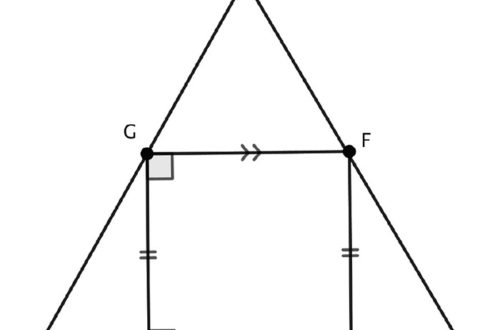Journal of the Mathematics Council of the Alberta Teachers’ Association
Volume 34 Issue 1, May 1997
As I begin my term as editor, I would like to express my appreciation to Art Jorgensen and to all the editors before him, for their diligent work in assembling each issue of delta-K. Their hard work created a mathematics journal that is recognized by mathematics educators well beyond Alberta. It is my hope that I can build on this strong foundation.
As I set out to further enhance the quality of this journal and to develop it as an important vehicle of communication, I realize that its effectiveness can only be maintained or enhanced if the information it contains is relevant to our readers. It is not always easy to achieve relevancy for all readers, but we should certainly work toward that goal. However, with your help, it can become an indispensable resource for mathematics
educators.
I know that many good things are happening in the mathematics classrooms of our schools, colleges and universities. It is important that they do not go unnoticed and that they are shared. It is in that spirit that I invite all of you-teachers, students, graduate students, university and college teachers – to submit items for inclusion.
delta-K must become a journal written by teachers for teachers. To achieve this, the table of contents has been revised to include additional sections to enhance your opportunities to participate. One such section called “Reader Reflections” allows you to reflect, react or comment on anything in the journal. “Student Corner” invites submissions from students. The section “Teaching Ideas” should simply overflow with your submissions because I know that many good ideas are out there. If you feel that resource reviews are important to be shared, then such a section could be established as well. Information from MCATA and, of course, more general-as well as recreational-mathematics articles will continue to be major sections in delta-K.
Please let me know how we can make delta-Kan even better journal, one that facilitates conversation about mathematics education in Alberta and beyond. Remember-your submissions, comments and reactions are always welcome.
Klaus Puhlmann
1 – 3
4
Klaus Puhlmann
5
George Ditto
6
Cindy Meagher
7 – 8
Kay Melville
9 – 11
From the 1996 Conference Chair
Graham Keogh
12
1996 Outstanding Mathematics Educator Award: Evelyn Sawicki
Liz Donovan
13 – 14
Klaus Puhlmann
15
Michael G. Stone
16
Polynomial Functions Restaurant
Colin Szasz
17 – 21
Connecting Literature, Language, and Fractions
Betty Conaway and Ruby Bostick Midkiff
22 – 23
Conceptual Understanding and Computational Skill in School Mathematics
Thomas R. Scavo and Nora K. Conroy
24 – 27
Apply the Curriculum Standards with Project Questions
Richard T. Edgerton
28
NCTM Position Statement: Early Childhood Mathematics Education
National Council of Teachers of Mathematics
29 – 33
Jane Barnard
34 – 35
Arthur Jorgensen
36 – 38
Some Interesting Facts About Euler’s Number
Sandra M. Pulver
39 – 40
The Probability of Winning and Losing at Craps and Roulette
Sandra M. Pulver
41 – 45
The Principle of Mathematical Induction: Its Power in Proving Conjunctive Propositions
Murray Lauber
46 – 47
Blueprints, the Division Algorithm, Consistent Systems and Augmented Matrices
David E. Dobbs
48 – 50
Motivating a Major Statistical Idea: The Standard Deviation for Populations and Samples
David R. Duncan and Bonnie H. Litwiller
51 – 60
Seven Mathematical Processes in the Protocol: Activities Give Them Life
A. Craig Loewen
61



